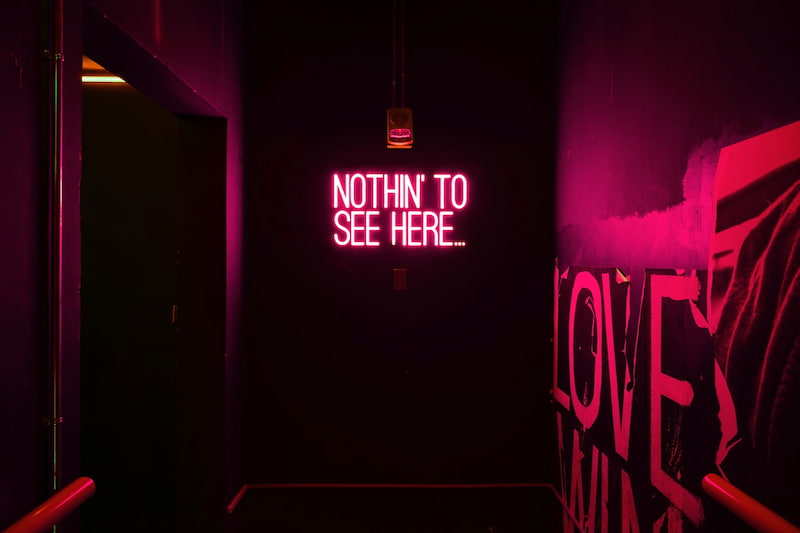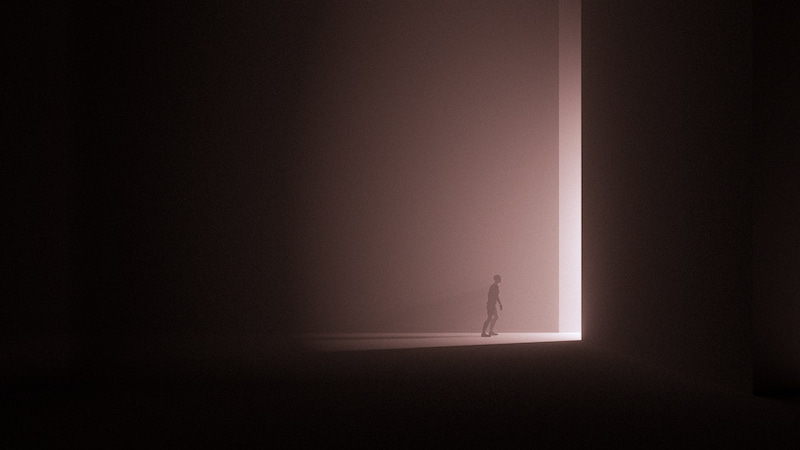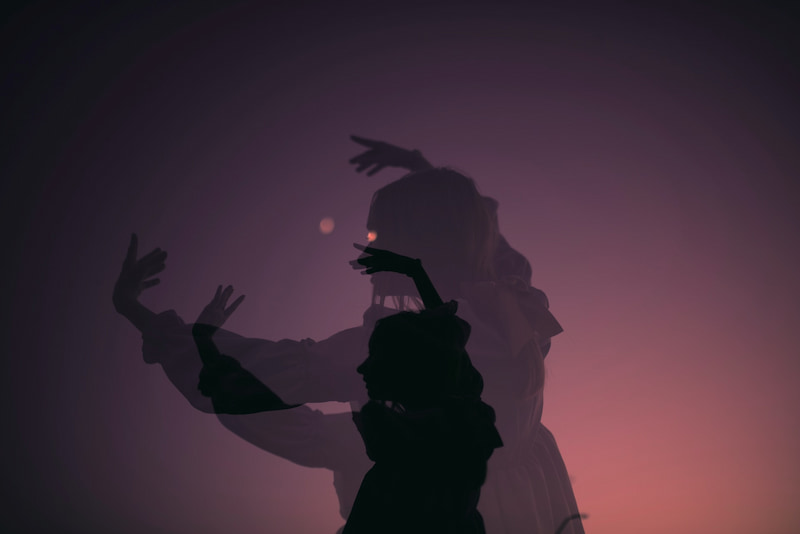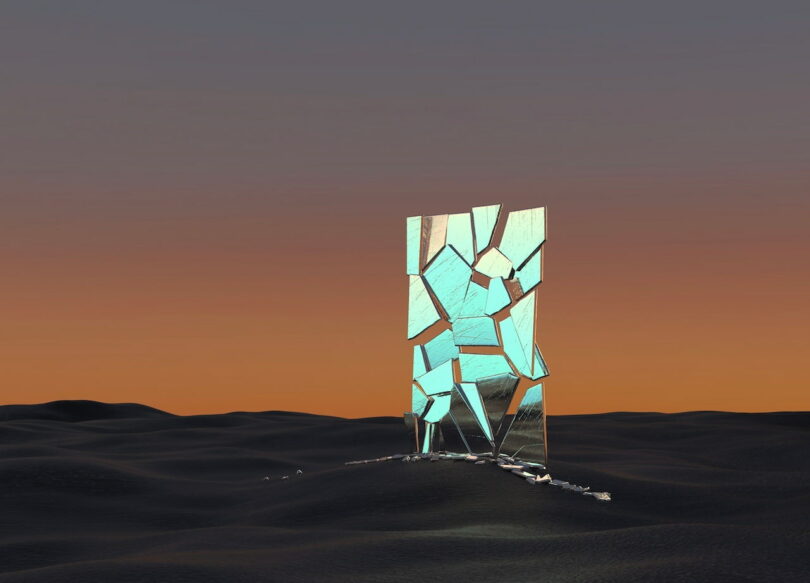Guest writer for Wake Up World
You’re at a crossroads in life. Everything has changed. You no longer know who you are, what you want, or where you’re going. It feels like the earth is crumbling beneath your feet, and all past references of who you were felt meaningless or like distant dreams.
Perhaps you’ve gone through a divorce or breakup, have lost your job, experienced an accident, lost loved ones, missed a major opportunity, had a mental health crisis, birthed a child, or have had something ripped from you that you weren’t prepared to lose.
Perhaps everything on the surface of your life looks “fine,” but underneath it all, you feel empty, restless, and dissatisfied for no apparent reason.
By the way, if you still need guidance after reading this article, you might like to check out the Living From a Place of Surrender course by Michael Singer, which can help you to let go and welcome the unknown during the identity crisis.
What is an Identity Crisis?

Most of us carry around a sense of who we are and what we want from life. Having an identity crisis means that all of those dreams, ideas, stories, and identifications we once held dear now feel insubstantial, empty, and groundless. Instead of having a clear sense of who we are, we carry around an uncomfortable sense of not knowing who we are or what we want deep down. We may carry the sense that the world is moving on without us, and we’re left behind – or even that we’re “nothing” or a “nobody” while everyone else seems to be a “somebody.”
Why Do We Experience Identity Crisis?
I knew who I was this morning, but I’ve changed a few times since then.
– Alice in Wonderland
An identity crisis usually comes as the result of some kind of ‘shock’ whether positive or negative. Often, when we go through major life transitions, we’ll undergo some degree of identity crisis.
Because our human identities (also known as our egos) are based on beliefs, ideas, memories, and identifications, anything that challenges these mental stories or renders them obsolete, creating a kind of ‘fracture’ or fissure that shatters our self-concept. An identity crisis is the result.
Common causes of an identity crisis can include the following:
- Moving / migrating
- Experiencing the death of a loved one
- Entering a new relationship or getting married
- Having a baby and becoming a parent
- Getting a new job
- Losing your job
- Falling ill or getting injured
- Retiring
- Experiencing a spiritual awakening or kundalini awakening
- Going through a dark night of the soul
- Having an existential crisis, quarter-life crisis, or midlife crisis
- Facing mental health issues
Any traumatic event, shock, or big life shift can spark an identity crisis.
11 Signs You’re Going Through an Identity Crisis

How many of these signs can you relate to?
- You feel dissatisfied with your life
- You lack a sense of direction or purpose
- The way you once thought about yourself and your life now seems false, dead, or pointless
- You don’t know what you want or need any longer
- You question the meaning of life
- The world feels extremely big/overpowering, and you feel extremely small/impotent
- You feel anxious, depressed, or restless
- You constantly mistrust or doubt yourself
- You feel ungrounded, floaty, and disoriented (mentally, emotionally, physically)
- Your life doesn’t feel like it’s your own
- You feel lost and isolated
You might experience all of these signs or just a few of them – it doesn’t matter how many you do or don’t resonate with; what counts is whether or not you feel like you’re going through an identity crisis. If this concept fits, embracing it can help you to feel a little more grounded!
Identity Crisis and Ego Death: The Embers in the Ash
There are so many articles out there talking about identity crisis, how to reframe it, and how to “reach your full potential.” But I’m not going to take the typical self-improvement route here (you’ve probably heard of it a thousand times anyway).
What I am going to say is that undergoing an identity crisis is painful and sometimes scary. For many people, it can feel like a tsunami has just wiped the slate of their lives clean. And sure, you can eventually get back up on your feet and find a new identity to latch on to. But the thing is that identity is innately fragile – anything can come along and make you question it, see through it, want to change it, or desire to outgrow it.
Like wildfire, the identity crisis can burn up our identifications, leaving us with a smoldering pile of ash. But within that ash, there are embers of light and clarity. And if you blow on those embers, you can get flames that can light a candle that you can use to do some deep internal exploration.
[pro_ad_display_adzone id=”110030″]
If you’re not interested in exploring your inner world or finding truth and freedom, and if you like carrying around a (seemingly) static sense of self, by all means, find another article on this topic.
But if you have this inexplicable sense that the identity crisis you’re going through is actually a gift, an opportunity, a doorway – and if you sense that the “you” that you think you are has never felt quite authentic, true, real or satisfying, then keep reading.
Identity crisis can be thought of as a form of ego death which is a form of fierce grace on the spiritual awakening journey that “breaks us to awaken us.”
In other words, the purpose of an ego death is to awaken us to our True Nature which isn’t defined by limited ideas about who and what we are – and it does this by showing us what we aren’t.
Ego death (or identity crisis) burns and dissolves the rigid ideas and fixed beliefs that create a gilded cage (ego) around us and sends us into a state of not-knowing, into a state of utter raw here-and-nowness, which can be terrifying to the fragile ego.
How to Accept the Deep Call of the Identity Crisis and Discover Your True Nature (5 Paths)

Not knowing who we are anymore is scary to the ego – there’s no doubt about it. And I’m not here to say that we don’t need an ego. We do! We need some kind of sense of self to operate in and interface with this world.
But the thing is, we don’t need to take the ego seriously. We don’t need to delude ourselves with the belief that any mental construct of ourselves that comes and goes is who we “truly” are.
If you want to find a sense of self again, a sense of personal identity, a sense of solid ego, that’s fine. That’s normal. In fact, I recommend both seeking to cultivate a healthy sense of self while also learning how to see through it.
There are many ways to rebuild your identity such as through rediscovering your values, finding ways to get physically grounded, exploring what you like and dislike, talking to a coach or therapist, reframing the experience, setting goals, keeping to a routine, and so on. (Again, you’ll find that the majority of guidance out there helps you to resolidify your ego on a human level.)
My goal here, however, isn’t to focus on resolidifying the ego – but instead, to use this discomfort as the grit in the clam that creates the pearl. No grit, no pearl.
The identity crisis is a deep call to rediscover your True Nature beyond the separate sense of self.
Who are you when everything is taken away from you?
Who are you when you no longer know who you are?
These are the diamond questions to look deeply into.
How do we look into these questions? How do we accept the deep call? Here are some paths that you might like to consider:
1. Embrace standing still

Standing still can feel like dying when you’re used to frantically moving about. But stillness is peace. Stillness invites us back home. Stillness helps us to stop and reflect and be. Stillness is not your enemy (as much as the ego would like you to believe that), it’s your friend.
The identity crisis throws us into a standstill – and that can feel bewildering at first. The ego identity loves movement because it is distracting and self-reinforcing. Stand still and have the courage to find peace and clarity.
Here are some healing words for you to drink in deeply:
Lost
Stand still. The trees ahead and bushes beside you
Are not lost. Wherever you are is called Here,
And you must treat it as a powerful stranger,
Must ask permission to know it and be known.
The forest breathes. Listen. It answers,
I have made this place around you.
If you leave it, you may come back again, saying Here.
No two trees are the same to Raven.
No two branches are the same to Wren.
If what a tree or a bush does is lost on you,
You are surely lost. Stand still. The forest knows
Where you are. You must let it find you.
— David Wagoner
Don’t try to “solve” or “understand” this poem with your mind. Just feel into its truth, and let it settle you.
2. Embrace not-knowing

Trying to ‘fit in’ and ‘get it right’ and use the ‘right’ words are all part of this intellectual game based in the fear of revealing the fact that really, I just don’t know.
– Unmani
If we’re truly honest with ourselves, we realize that when all is said and done, we cannot know anything with 100% certainty.
In the words of Greek philosopher Socrates, after all of his decades of learning, thinking, and theorizing, he concluded: “I know that I know nothing“
It’s okay not to know who you are or what you want. Take this as a permission slip to embrace not-knowing. It’s normal to feel a bit afraid or disoriented. But once you let go and accept that it’s okay not to know, you can find more inner space and peace.
If you still struggle to trust and embrace not-knowing, look at nature. Look at children. They “don’t know,” and yet there is so much freedom and spontaneity there; so much freshness and aliveness.
Once we think we “know,” we shut ourselves and others into tight little boxes and labels that don’t allow for the full expression of the sacred wild movement of life.
3. Practice Soul Work

Soul work is the practice of going within and listening to your Soul’s calling to reconnect with your True Nature.
Unlike inner work, which is very psychological-centered, Soul work focuses on the spiritual aspect of ourselves. Soul work practices involve anything that helps us to open, surrender, rediscover, and rest within our true inner home.
Some Soul work practices that you can explore to help you accept the deep call of the identity crisis can include the following:
- Prayer
- Mindfulness
- Meditation
- Bhakti/devotion
- Contemplation
- Nature immersion
- Lectio Divina
Focusing on a simple spiritual practice can help you to find an inner sense of rootedness when you’re in a state of crisis, opening you up to reconnecting with your True Nature.
Read more about Soul searching »
4. Understand that there is no authentic ‘self’, but there is an authentic Self

When we undergo an identity crisis, we’re experiencing a breakdown of something (aka., the identity or ego) that was never truly who we were.
In the West, we have a fixation with being our “authentic self,” and yet that “self” which we think we are isn’t authentic because it based on thoughts, beliefs, and memories – hence why pursuing “authenticity” always feels so elusive (and the self-improvement industry is a multi-billion dollar machine!).
How can anything within us – memory, belief, identity, preference, and so on – that is subject to change truly define who we are?
As Mateo pointed out in his authentic self article:
There is no such thing as an authentic self (lowercase ‘s’). The self, or the ego, is a construct that can easily change. It has no true depth or substance. Therefore, how can it be authentic?
On the other hand, there is an authentic Self (with a capital ‘S’). This authentic Self is a deeply rooted quality or essence that we always carry with us.
Take some time to reflect on yourself when you were five years old, fifteen years old, twenty-five years old, and onwards – what within you has actually stayed the same? If you’re honest with yourself, you’ll realize that you have constantly shifted and changed throughout life.
But something has stayed the same. Something has been there witnessing it all. We can call that presence Consciousness or Awareness, which is the Self (with a capital ‘S’) that dwells as the backdrop of your entire existence. This Self precedes all thought and is what’s known as our True Nature.
5. Ask, “Who am I?”

“Who am I?” is the central question of the spiritual path known as self-inquiry, which is a core practice of the path of Jnana (or self-knowledge).
I explore this path more in-depth in my article on self-inquiry. But I want to share how powerful this question can be if you’re going through an identity crisis.
There are many questions other than “Who am I?” you can ask yourself, such as:
- What am I?
- What was my face before my parents were born?
- Who is thinking these thoughts?
- Who is experiencing this moment?
- Who am I when I don’t reference the past or future?
Pick whatever question resonates with you and stick with it.
What’s powerful about undergoing an identity crisis is that it presents an opening or gateway through which to explore who you truly are.
By asking the question, “Who am I?” and releasing attachment to all mental descriptions and ideas, you enter into a space of inner silence. You enter the realm of pure being, where the false self (ego) dissolves for a few moments or minutes, and the truth of who you really are remains.
Of course, self-inquiry can feel like a mere mental activity at first. But if you stick with this question with curiosity and openness, eventually, deep inner shifts can occur.
Awakened Sage Ramana Maharshi was quoted as saying the following:
Self-inquiry is the one infallible means, the only direct one, to realise the unconditioned, absolute Being that you really are.
See the blessing in disguise gifted to you through this identity crisis. Recognize that by losing your attachment to who you thought you were, you now have the opportunity to discover who you truly are.
Final Words

Losing touch with our seemingly solid sense of self can feel disorienting, depressing, and anxiety-provoking. No one wants to feel like their world has crumbled. No one wants to feel lost, aimless, or without answers. No one wants to feel like a “nobody.”
But going through an identity crisis can be seen as a form of spiritual initiation if we choose to accept the call. Not only does questioning who we truly are remove everything that we’re not, but it also reveals our Inner Light beneath the fog of the mind if we dare to look.
If you’re experiencing an identity crisis, I hope you know that it’s okay to try and seek a new sense of self. It’s good to have an ego. But when we start mistaking the ego for being the truth of who we are, we suffer.
Our egos will always change – they are shapeshifters by nature. Any construct that is defined by thought or feeling is bound to come and go. But what doesn’t change is the Consciousness that is beneath it all that cannot be defined, captured, or destroyed: our birthless and deathless True Nature.
What has your identity crisis been like? You’re welcome to share below in the comments.
About the author:
Aletheia Luna is a prolific psychospiritual writer, author, and spiritual mentor whose work has touched the lives of millions worldwide. As a survivor of fundamentalist religious abuse, her mission is to help others find love, strength, and inner light in even the darkest places. She is the author of hundreds of popular articles, as well as numerous books and journals on the topics of Self-Love, Spiritual Awakening, and more. See more of her work at lonerwolf.com.
This article, 11 Signs You’re Suffering From an Identity Crisis (and What To Do), was originally published on lonerwolf.com, reproduced with permission.
Have you ever wanted to achieve something deeply meaningful but struggled to channel your potential? This free online session explores how subtle energy can help you align your inner power with your goals, paving the way for transformation.
Join one of the leading educators in metaphysics as they guide you through unique practices to cultivate purpose, access creative insights, and create a magnetic energy field that supports your success. Discover how to break through limitations and envision the ripple effects of your work influencing your community.
Don’t miss this opportunity to align your energy and create your most powerful year yet. Learn the tools and practices you need to bring your vision to life. RSVP for free today and start your journey!
If you’ve found value in our articles, we invite you to support the release of our brand-new book, “Gratitude Practices for Kids: A Practical Guide for Adults to Instill a Spirit of Appreciation and Positivity in the Next Generation.“
“Gratitude Practices for Kids” brings together over 25 innovative and accessible practices designed to enhance gratitude in everyday life. This comprehensive guide is backed by 17 scientific studies, ensuring each concept is grounded in research, underscoring our commitment to nurturing growth, emotional intelligence, and positive interactions between adults and children.
We encourage you to opt for the paperback version to celebrate this new release. Dive into its fresh pages away from digital distractions, allowing you to immerse yourself in the transformative practices it offers.
Over recent years, Wake Up World has faced significant online censorship, which has impacted our financial ability to operate. Moving into book publishing represents a strategic step to secure the ongoing funds needed to continue our mission. By purchasing Gratitude for Kids, you help us keep our content free and accessible to everyone, avoiding needing a paywall. With over 8,500 articles published in the last 13 years, we remain dedicated to keeping our valuable content open to all.











